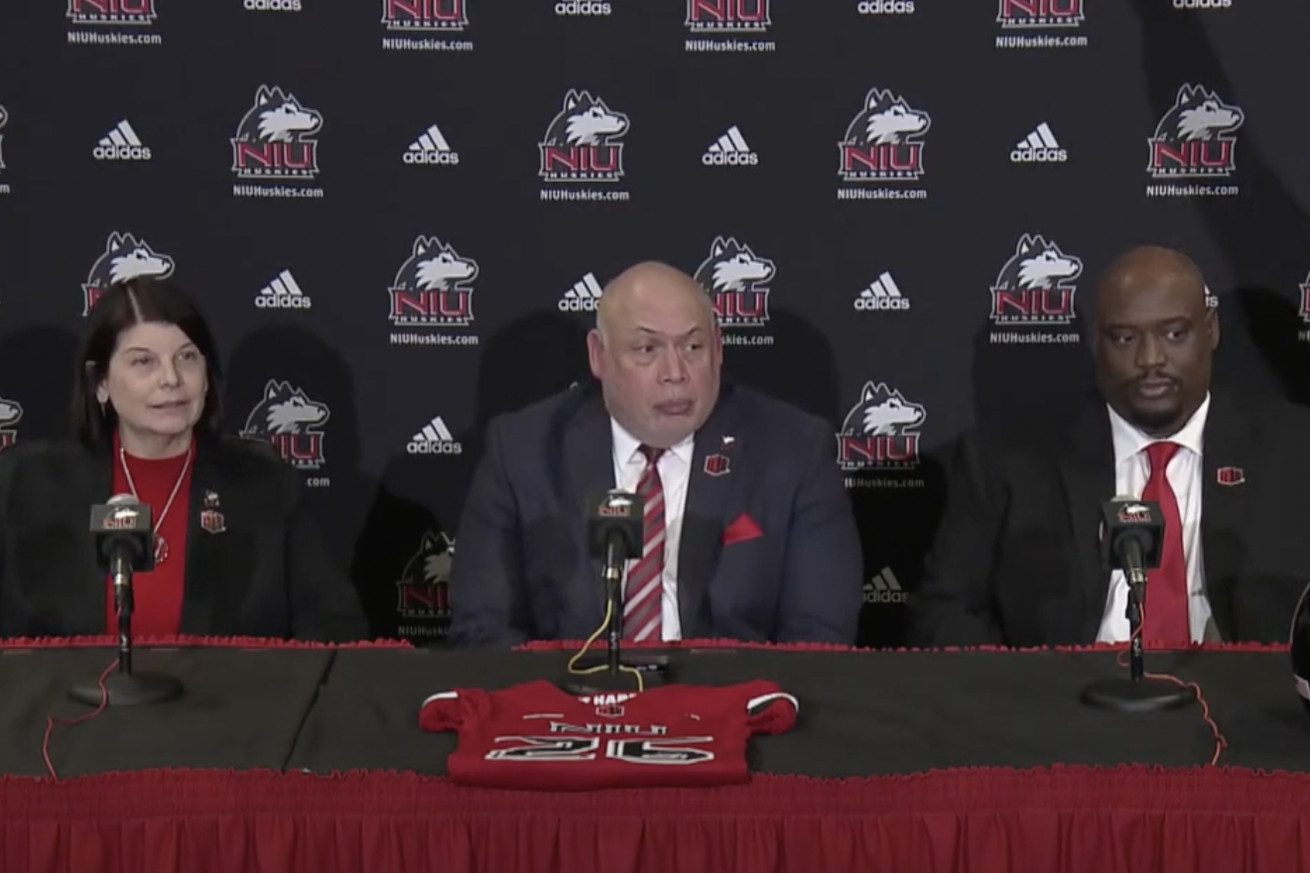
Northern Illinois’ leaders took the podium Tuesday to discuss the football team’s groundbreaking move to the Mountain West in 2026.
The most stable conference in college football lost a piece of its stability Tuesday afternoon.
Northern Illinois University officially announced its decision to leave the Mid-American Conference behind to become a football-only member of the Mountain West Conference, effective July 1, 2026. The move will conclude Northern Illinois’ second— and most successful— stint in the MAC; The Huskies were previously members from 1975-86 prior to re-joining the conference in 1997.
In fact, all 12 MAC institutions for the 2024 football season had held membership in the league since 1998. But Northern Illinois will exit the most tight-knit geographical conference in the sport to pursue a new opportunity as the easternmost member of a new-look Mountain West.
To usher in the monumental day for the athletic department, Northern Illinois held a press conference with university president Lisa C. Freeman, athletic director Sean T. Frazier, and head football head coach Thomas Hammock at the podium. Mountain West commissioner Gloria Nevarez also joined the press conference via Zoom.
Here is what to know about NIU’s relocation:
Reasons for move
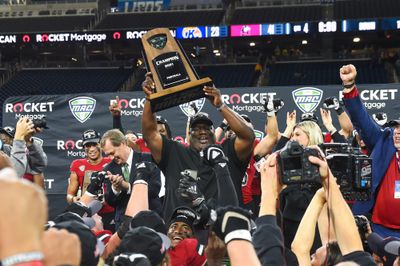
Photo by Aaron J. Thornton/Getty Images
The current cycle of college football realignment can be traced to the first two dominoes falling in 2021, when Oklahoma and Texas spurned the Big 12 for the SEC. The joint move East sparked the Big 12 into action, with the American Atheltic Conference, Conference USA and other leagues acting accordingly after being raided in turn.
But the groundbreaking move that really shifted conference realignment occurred in 2022, when Los Angeles-based programs UCLA and USC ignored the Big Ten’s geographical alignment and joined the primarily Midwest-based conference for greater media revenue. At the time of this move, every athletic program in the FBS simultaneously wondered, what move is best for us in this rapidly changing landscape?
Northern Illinois was among those programs, and Frazier confirmed realignment talks began in the fall of 2022 following the UCLA and USC move, calling the Big Ten’s manifest destiny to the West Coast a “watershed moment for a lot of us professionals that were in the business.” The athletic director confirmed the four main criteria he assessed when evaluating the program’s first conference move in nearly 30 years.
“There were four critical areas we assessed as we were going through this particular process,” Frazier said. “One is the House v. NCAA settlement. There’s so many different changes that are going to happen relative to the August date of opting in or opting out. The other is obviously the transfer portal. The transfer portal changed the game. We’re looking at a lot of change for student-athletes jumping from different programs and having some more certainty on what that process looked like was a key component.”
After addressing the House v. NCAA settlement — which will result in revenue sharing with student-athletes and increased roster limits — and the transfer portal, Frazier continued with two other items he addressed in the Mountain West move — NIL and the College Football Playoff.
“Name, Image, and Likeness — understanding that student-athletes can monetize their likeness for financial gain. That’s another level of complexity,” Frazier said. “And then, the College Football Playoff. The expansion to 12 teams and us being apart of that process, that is an expectation for our program. We know what that feels like and we know what that tastes like. Those four things were a critical component in our assessment about moving forward and taking a look at other options or things that might be coming our way based on our national brand.”
Frazier confirmed news of the House v. NCAA lawsuit, which was settled on May 23, 2024, was the moment the Mountain West possibility became a reality for the Huskies. Northern Illinois was further assisted by vacancies in the Mountain West after five of the conference’s members — Boise State, Colorado State, Fresno State, San Diego State, and Utah State — fled to the Pac-12 in September.
“I think this became real when we started to see certain things going on with those four components, most importantly, the House settlement requirements,” Frazier said. “I think that’s the watershed moment for a lot of institutions evaluating FBS.”
Life as a Mountain West member
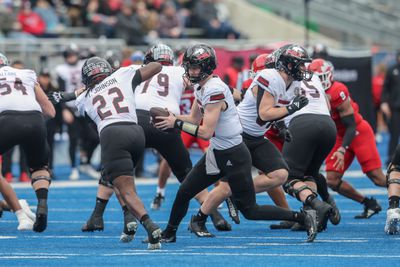
Photo by Loren Orr/Getty Images
Entering a conference without an opponent within 900 miles or 13 hours driving distance certainly presents many geographic challenges for Northern Illinois.
The Huskies previously had the luxury of a tight-knit geographic league in the MAC, but in 2026, they will adjust to a new life of significantly longer plane rides during their conference slate.
“For us, it’s going to be dealing with the time zone issues, dealing with our travel, and dealing with different types of offenses and defenses,” Frazier said on the greatest challenges of joining the Mountain West.
Not having a regional rival like Ball State also brings up a conundrum.
Are fans of Mountain West schools willing to travel to DeKalb, Illinois to watch their team face Northern Illinois? In a more-concentrated conference, road trips were much more practical from university to university. But there is one downside of being in the MAC when it comes to attendance — midweek MACtion. The Huskies will no longer play Tuesday and Wednesday night games, which were often characterized by diminutive attendance in exchange for greater television exposure. More weekend matchups means more fans should be decorating the stands in the fall.
“This is a destination state,” Frazier said. “Coming to Chicago is something people want to do. At the end of the day, the best time to do that is when your team is playing. We will see if that happens, but based on the times that the games are played and others, and our proximity to the city, it’s a good deal.”
Another aspect of Mountain West life Northern Illinois must monitor is recruiting. The Huskies will no longer travel to Buffalo, Toledo, or Akron for their conference games. With opponents from Colorado, Nevada, California, and even Texas on their future league schedules, Northern Illinois is rethinking how to assemble a football team. Mountain West membership could help with westward recruiting, but the tradeoff involves losing potential midwest recruits to other MAC programs.
“We’ve looked at different recruiting landscapes,” Hammock said. “We’ve looked at Texas and the value that would provide. Obviously, when you play schools more west, that gives you an opportunity to get in a lot more homes out that way. It’s exciting for us. We have to gear ourselves up for travel, but it opens us up for a lot more recruiting opportunities we didn’t have before.”
Hammock was also asked to compare the competition level between the MAC and the future Mountain West he will participate in. The Huskies are fresh off a Famous Idaho Potato Bowl double-overtime victory over Fresno State, but Fresno State will belong to the Pac-12 by the time Northern Illinois on-boards. Still, Hammock referred to the Mountain West move as a “next level” move for the program.
“We just played Fresno who is in the Mountain West, and that turned out pretty good in our favor,” Hammock said. “In 2021, we played Wyoming and that was a very competitive football game. There are new teams being added, but it’s a very competitive conference. Obviously having Boise having an opportunity to play in the College Football Playoff lets you know the commitment that conference has in its football programs. When I took the job, Sean Frazier talked about next level. This is the next level, and it requires next level resources and next level investment.”
Hammock mentioned Boise State, but the Broncos — the unquestionable standard of the conference when it comes to football success — will not overlap with the Huskies as Mountain West members.
Boise State exits the Mountain West along with four other programs on July 1, 2026. The 2026 edition of the Mountain West consists of Air Force, Hawaii, New Mexico, Nevada, Northern Illinois, San Jose State, UNLV, UTEP, and Wyoming from a football perspective. But even factoring in the conference’s incredibly busy realignment phase since September, Frazier believes this move still gives his athletic program its optimal sense of stability.
“Looking at the leadership, looking at the institutions involved, looking at the landscape, again, this is a conference that has had significant academic and athletic success, and I think that’s the direction we went with as well as taking a look at what it could look like in the future,” Frazier said.
Nevarez confirmed during the press conference that the Mountain West, for now, is not looking to expand further. Fellow MAC program Toledo was in initial Mountain West realignment rumors earlier in the fall, but Nevarez’s comments effectively put that to rest.
Why the Mountain West wants NIU
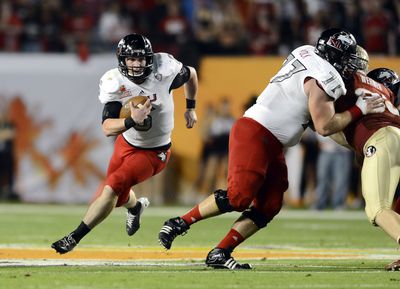
Ron Chenoy-Imagn Images
It’s no question Northern Illinois reveled in the limelight more than any other MAC program over the past 15 years. Since 2010, the Huskies have five MAC championships, seven division titles, 11 bowl appearances, and four bowl wins. They notably crashed the BCS with an Orange Bowl appearance in 2012, rostered a top-three Heisman finisher in Jordan Lynch in 2013, and then reappeared on the national radar in September 2024, earning a brief stay in the top 25 for knocking off current College Football Playoff semifinalist Notre Dame in South Bend.
Northern Illinois ranks top 30 in the FBS in total wins over the past 15 years and the Mountain West commissioner also points to the Huskies’ academic success as reasons they were an attractive institution for the conference.
“That kind of trajectory and commitment and success meshes with our mission and values,” Nevarez said. “Above all else, the academic mission being at the forefront — the recognition by the Carnegie Foundation for your advancement of teaching as a research university with high activity, as well as your College of Education being the second largest providers of educators in the state. There’s a high correlation between student-athletes and those entering the profession as educational professionals, so there was just so much great alignment.”
Nevarez also stated the importance of Northern Illinois’ location in DeKalb. Located roughly 60 miles, or an hour drive, outside of Chicago, the Huskies’ presence near the third-largest city in the United States certainly helped their case for the Mountain West. As the lone Central Time Zone member of the conference, the Mountain West can now claim stake in the premier media market of the Midwestern United States.
“We love the addition of a fourth time zone in the third-largest media market in the country in the year that we are going to market for our media rights,” Nevarez said.
While the MAC’s television advantage was nationally televised football on Tuesday and Wednesday nights in November, the Mountain West takes a different approach to earn time in the spotlight. The Mountain West has a near-monopoly on late-night kickoffs, and its time zone is its greatest value to its media partners. Adding a major media market like Chicago to the fold was a mission of the Mountain West before its media rights expire in 2026.
“While Chicago and Illinois stretches that eastern boundary a little bit, football is that one sport that travels once a week and has a shorter season, so we felt comfortable with that football-only member that got into that fourth time zone and delivered a strong media market,” Nevarez said.
What happens to non-football sports?
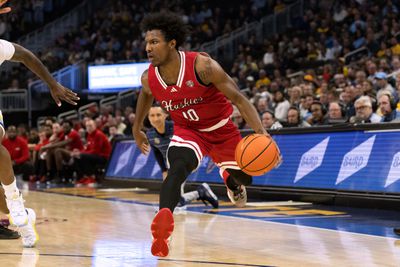
Jeff Hanisch-Imagn Images
Northern Illinois is joining the Mountain West as a football-only member, so the Mountain West membership will not extend to its other 16 varsity sports. However, this decision certainly impacts those 16 sports, as they may seek a new home.
Nothing is set in stone yet, but President Freeman stated the athletic department will take advantage of the year-and-a-half grace period before the football team officially moves into the Mountain West to scour its options.
“We will be looking for the best regional opportunity in our other sports, and we have time to do that,” Freeman said. “That doesn’t mean that none of our sports will stay with the MAC.”
Although Freeman opened the door to the possibility of staying in the MAC for some non-football sports, she acknowledged in the press conference that as currently written by MAC bylaws, MAC members are required to have FBS football as a sport for conference affiliation. That suggests the Huskies must find a different home for other sports from basketball to baseball to tennis to wrestling.
“We’re an attractive partner,” Freeman said. “We have a strong academic culture. As Sean (Frazier) said, just as we schedule football nationally, we schedule our other sports regionally across a number of conferences. We’re very confident we will continue to provide all our student-athletes across all of our sports with very quality experiences for competition and championship pursuit.”
Frazier confirmed his preferred plan of attack for Northern Illinois is Mountain West membership in football and affiliation with a single conference in all other sports, rather than belonging to five or six different conferences to house their athletic programs. He points to the Army and Navy model as a blueprint for the Huskies.
“Army and Navy have done really well with their model of having the Patriot League as their multisport (conference) and having the American Athletic Conference as their football,” Frazier said. “This is not uncommon. It’s a little different, but it really works for the service academies — having a high-level program and having a regional component to make sure you have those regional rivalries, those destinations, those connectivities in the state.”
No decision has been made at the time for Northern Illinois’ 16 non-football varsity sports. The football program officially joins the Mountain West on July 1, 2026.